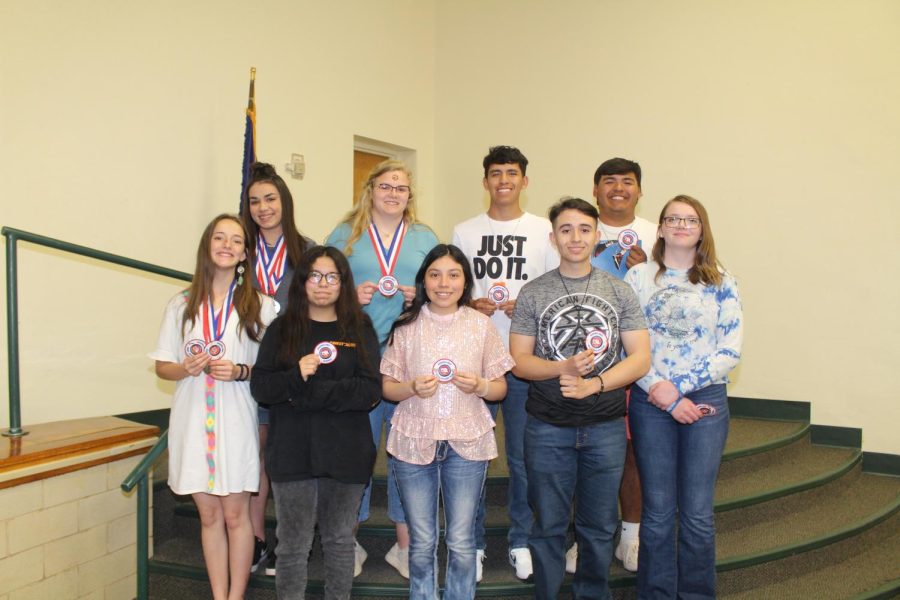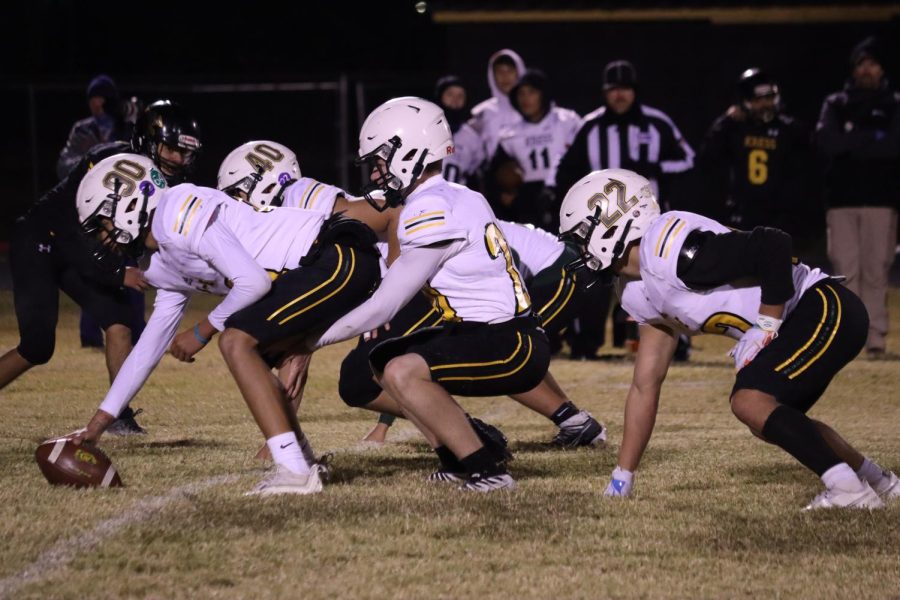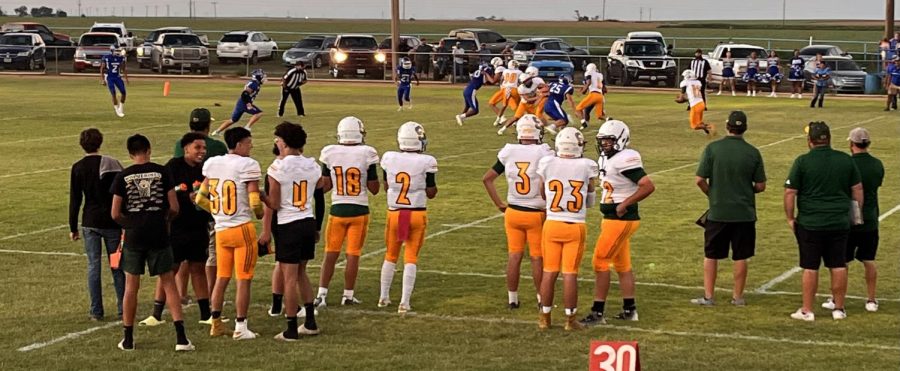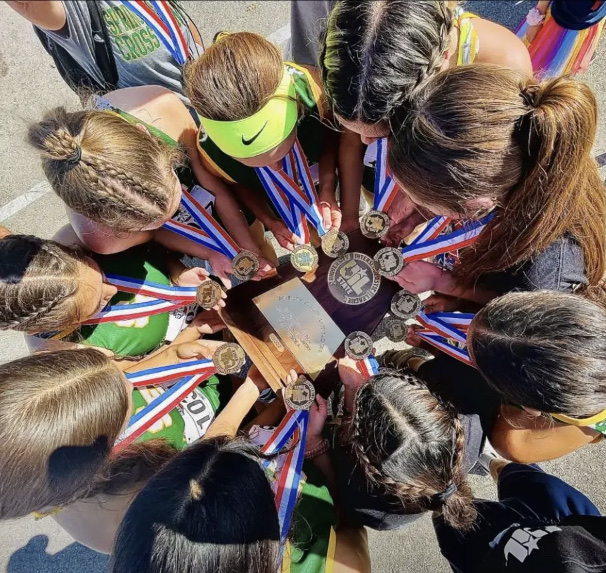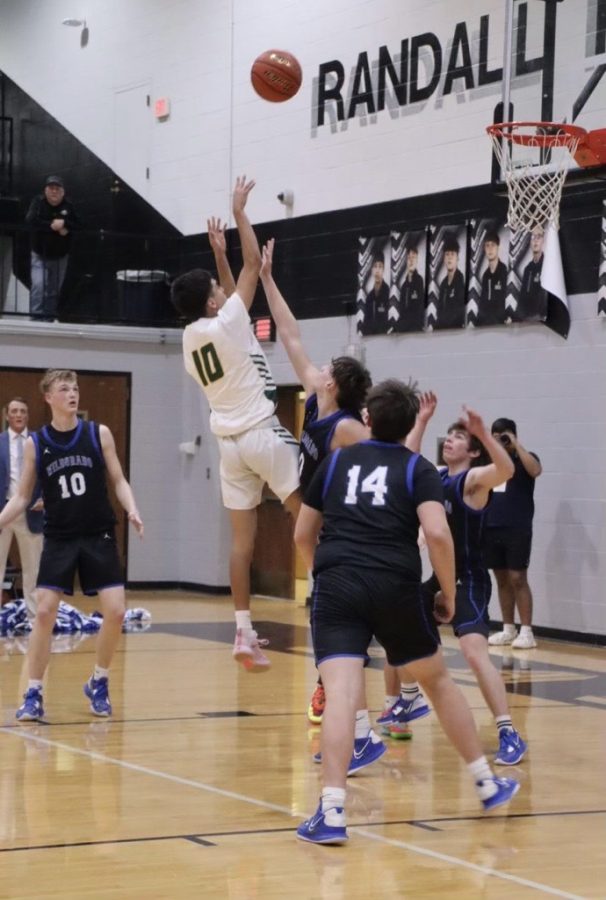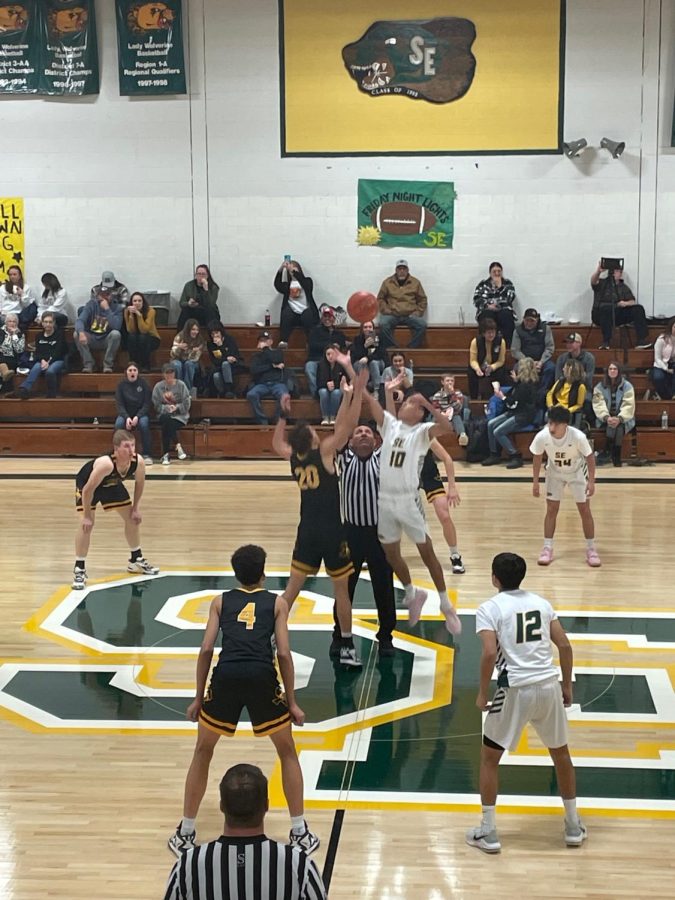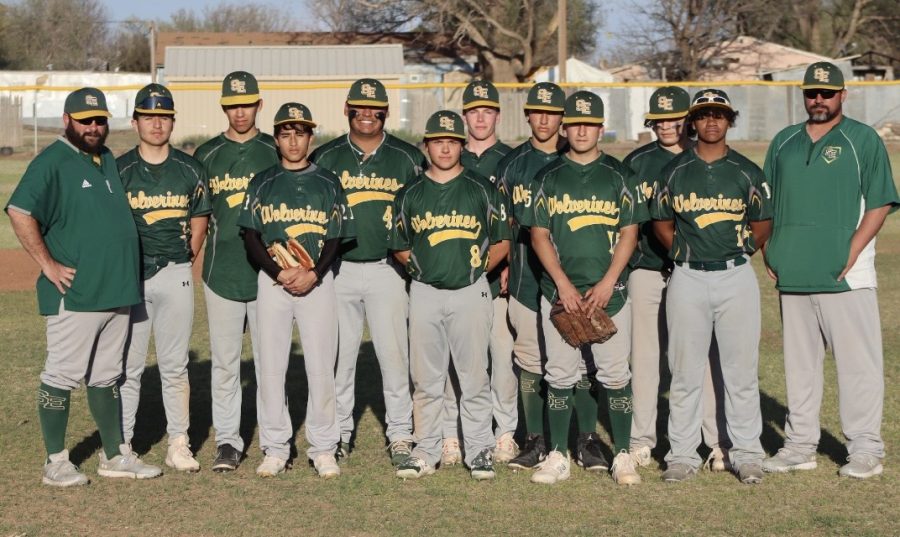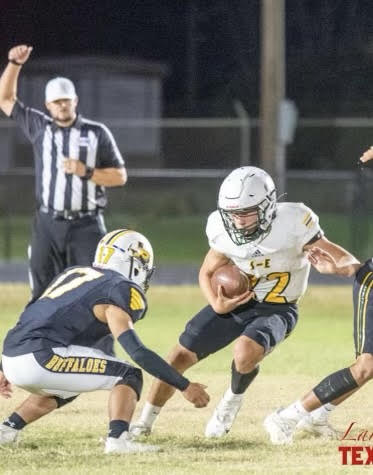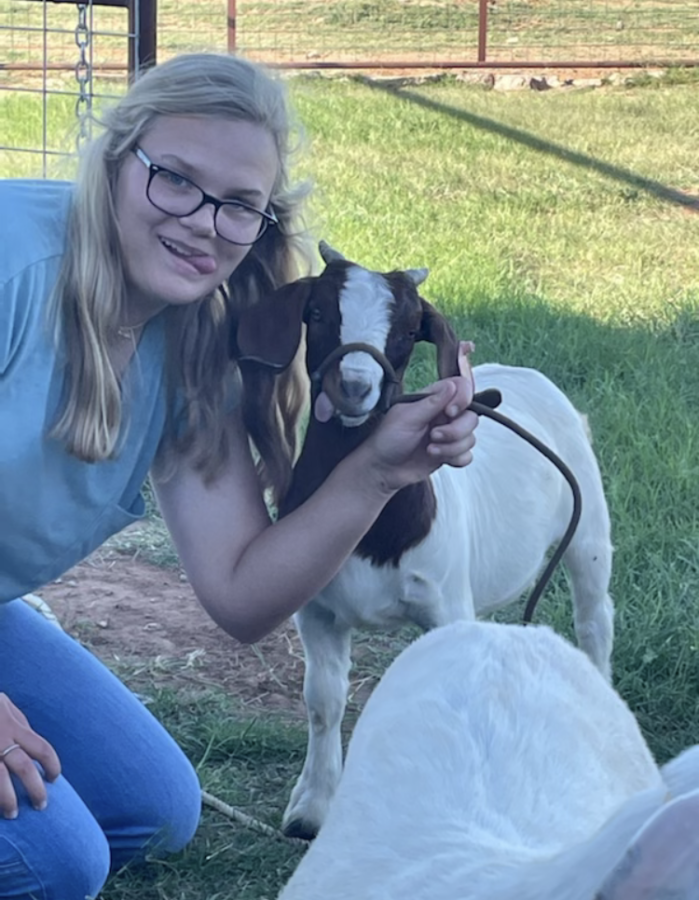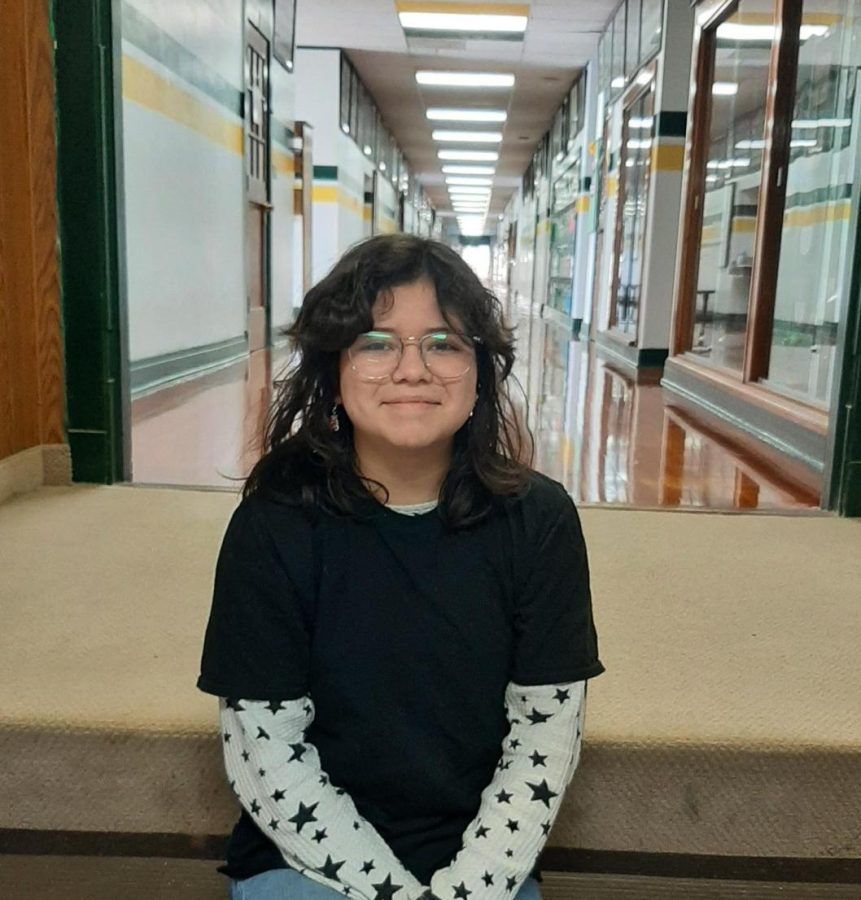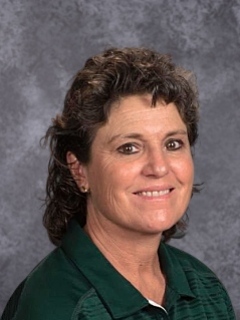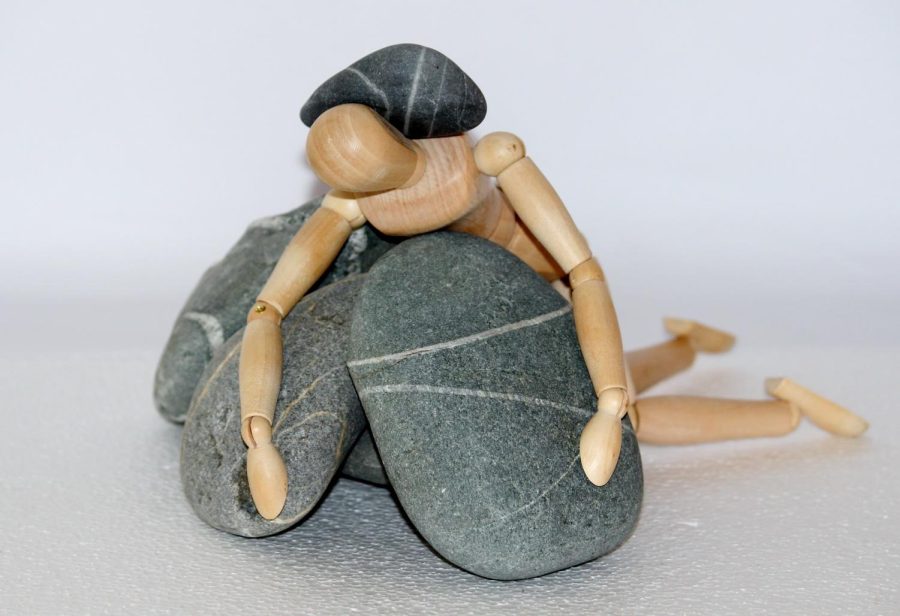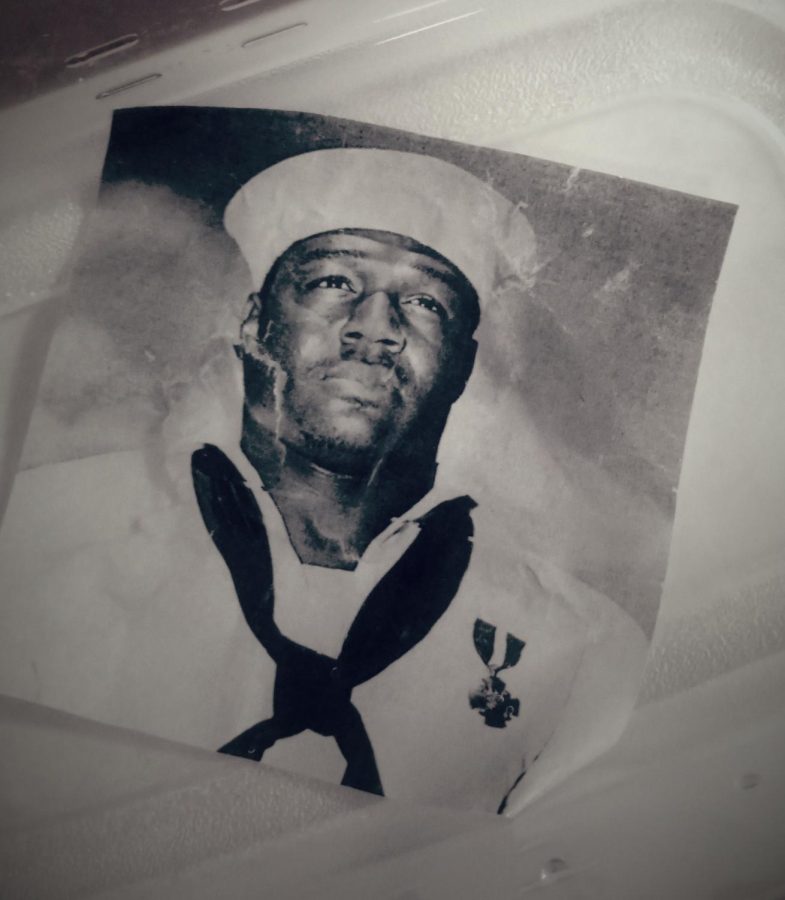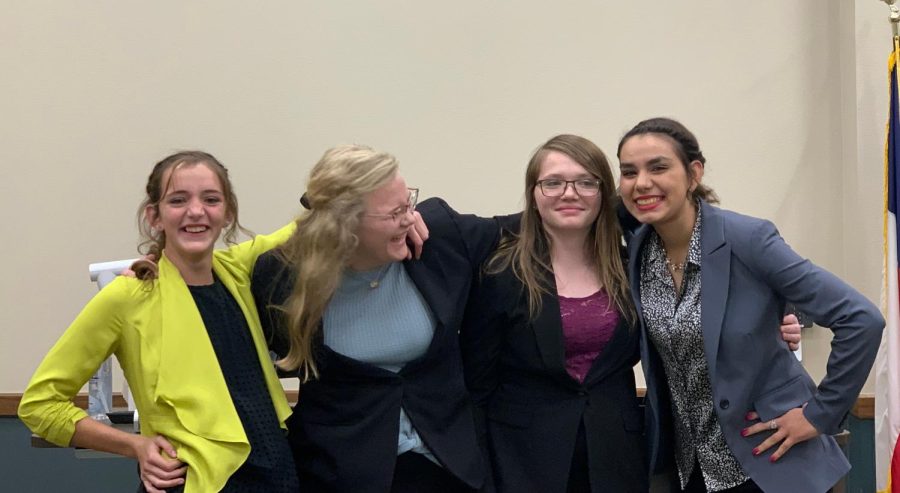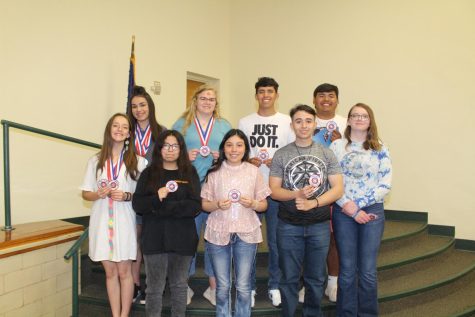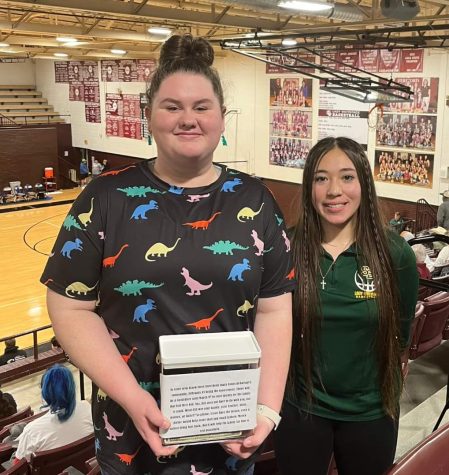SEHS Competes at Regional Congress Competition
SE Congress competitors Lynnsey Mahler, Emma Stevenson, Lexi Anchondo, and Annabelle Anchondo having fun before the competition.
November 9, 2022
The SEHS Congress team went to compete on November 1st at Lubbock. The participators were senior Annabelle Anchondo, juniors Emma Stevenson and Lynnsey Mahler and freshmen Lexi Anchondo with their coach and teacher Marlana Tanaro. This team did their best to debate and show the other schools that SEHS does not play around and take pride in their school.
The main objective in congressional debate is to debate on pieces of legislation, including bills and resolutions. Each team before the tournament need to look up as many topics as possible and choose whether or not to vote, pass, or defeat the measures they have examined.
“Congress helps them think on their feet. It also helps them to get along with people in order to have the greater good happen,” Tanaro said. “In other words, what they’re supposed to do. Then, the judges kind of watch them do this as well, but they’re supposed to go around, kind of introduce themselves, and talk to each other in different schools even though they’re competing against each other.”
Congressional debate gives students the skills that they use in work scenarios. For example, students learn how to organize speeches and speak effectively. These are only some of the skills that students learn when competing in this UIL event.
“I’ve learned to be fearless in congress. You have to give a semi prepared speech in front of twenty strangers who are looking to tear apart every detail about you,” Mahler said. “If they sense fear, the only answer is to get up to the floor and speak like you were meant to be there.”
When starting the competition, a student participant enforces parliamentary procedure which is a rule that defines how a situation should be handled in legislature; then, the debate begins.
“At first, I thought I would absolutely hate competition, and I was nervous about going to compete, seeing as it was my first time in Congress,” L. Anchondo said. “But when I started understanding the competition and understanding what was going on, it was super enjoyable.”
After the debate begins, the first bill and presiding officer recognizes a speak to sponsor, or gives an affirmative speech on the bill followed by a questioning period. This is a period of time set aside to ask questions about the affirmative or negative.
“Questioning is the hardest part of the competition simply because you never know what people are going to ask,” Stevenson said. “As things get into motion, that feeling goes away, and I feel like I’m in my own atmosphere. I’m comfortable.”
I’ve learned to be fearless in congress. You have to give a semi prepared speech in front of twenty strangers who are looking to tear apart every detail about you. If they sense fear, the only answer is to get up to the floor and speak like you were meant to be there.
— Lynnsey Mahler
The process is applied again for a speech in negation of the bill at hand. After that, members continue giving speeches on both side of the bill until arguments are exhausted. The debaters will then vote to decide whether the bill will be passed or rejected and move to the next bill until the conclusion of the debate.
“Afterwards, a lot of emotions hit me, considering I’m a senior this year, and it was the last time I’d ever be in that room with Emma, Lynnsey, and my sister. That was sad to think about, but I was proud of myself because I felt good about the speeches I gave,” A. Anchondo said. “I knew I hadn’t given enough speeches to advance, but that’s okay. I had fun and did a great job on the speeches I gave.”
Congress can be very challenging to those who are in it; it takes time to have all the material you need to even state your debate, and most of the members did face challenges. However, they overcame them.
“The biggest challenge was personalities. Some of the other schools had some very deep personalities, and that was very hard for even me to get over just when you don’t treat each other right because that’s my number one rule,” Tanaro said. “In any speaking event, if you talk down to people or you make people feel that they’re inadequate or they don’t know anything or in any way demean somebody else with your speech, I will pull you. I will not let you compete because that’s not how a Wolverine acts.”
Despite some challenges, and not advancing, Tanaro is proud of her team and they are already looking towards next year.
“Each year my congress students get better and better. In fact, we have already started preparing for next year. We have ideas for legislation and how we can do better,” Tanaro said. “I liked how they came back and analyzed their performance instead of getting down for not advancing. Their drive is amazing.”




